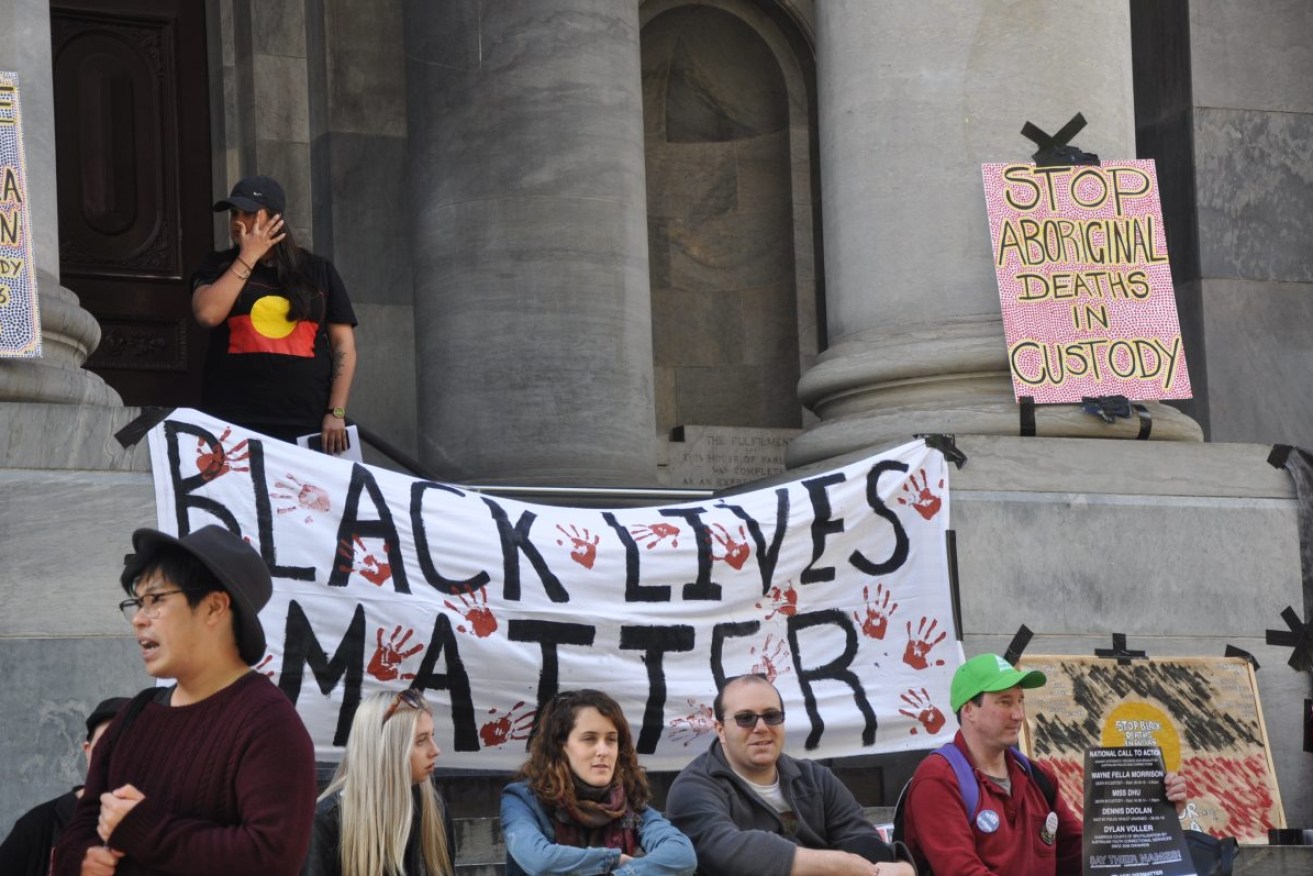‘Litany of failings’ over Adelaide death in custody
A coronial inquest has found a “litany of failings and shortcomings” in the management of an Indigenous man who died after an altercation with prison officers while in custody at Yatala Labour Prison.

A 2016 rally at SA Parliament to protest the death in custody of Wayne Fella Morrison. Photo: Tim Dornin/AAP
Deputy State Coroner Jayne Basheer says the death of Wayne Fella Morrison cannot be directly attributed to the restraint applied to the 29-year-old, which included the use of a spit hood, during the incident at Adelaide’s Yatala Labour Prison in 2016.
“No single factor or mechanism can be identified as the sole underlying cause or explanation for Mr Morrison’s cardiac arrest,” the coroner said in her findings on Friday.
“The potential causes are multifactorial in nature and include the effects of marked physical exertion, emotional and psychological stress and underlying coronary artery disease.”
Basheer did not make any adverse findings against the guards involved in the prison incident and said the level of force used was reasonable, necessary and not excessive.
But she was highly critical of the department including the inadequate training of officers at Yatala and other aspects of Morrison’s care.
“The evidence has revealed a litany of failings and shortcomings at every stage of Mr Morrison’s management whilst he was in the care and custody of the Department for Correctional Services,” the coroner said.
“To compound matters, the evidence has revealed serious deficiencies in the training of correctional officers at Yatala and their ability to manage a major incident.”
More specifically, Basheer said prison officials had failed to identify Morrison as Aboriginal on admission and said the officer who conducted his initial interview was not qualified to do so.
Nor had the officer raised a notice of concern in relation to the prisoner’s mental health.
“If a notice of concern had been raised, Mr Morrison would have been referred to an intervention team for assessment by medical professionals. He was entitled to that assessment,” the coroner said.
“I cannot eliminate the possibility that intervention at this time may have prevented Mr Morrison’s death.”
Basheer said a number of important documents related to Morrison’s care in custody had also gone missing, including a seven-day observation form, which made her unable to tell if any behaviours of concern were noted.
As a first-time Aboriginal prisoner, he was the very person that such a form was designed to protect, she said.
At one stage and in a flawed process, Morrison was transferred to police cells at suburban Holden Hill where the conditions were “barbaric and inhumane”.
“The conditions are more akin to punishment or solitary confinement. It is shocking that in the 21st century any person, including prisoners, would be housed overnight in such appalling conditions,” the coroner said.
Before his death, Morrison had been held in custody for about a week on an assault charge after being refused bail.
The altercation with prison officers came as he was being taken for a court appearance by video link.
Once restrained, he was lifted into a van and placed face down but was blue and unresponsive when he was pulled out.
Despite resuscitation attempts, he did not regain consciousness and died in hospital three days later.
In her recommendations, Basheer said given the extent of the failings by the Department for Correctional Services, it was inappropriate that it be left to remedy its own issues and called for an independent board of inquiry to be established.
Morrison’s family was understood to be considering the coroner’s findings and would respond at a later time.
13YARN 13 92 76
Aboriginal Counselling Services 0410 539 905
-AAP




